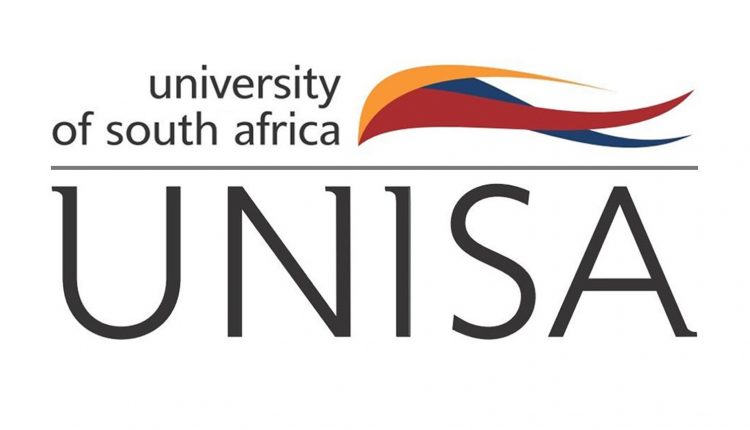University of South Africa: Advocating lifelong and life-wide learning
Unisa staff members, business forums, government officials and student representative council (SRC) members were part of the main stakeholders attending RPL training that took place in Cape Town, Bloemfontein, East London and Durban.
Ms Eugene Nkhwashu and a colleague in Cape Town
The training covered the illegibility to apply via RPL, costs, success stories and some of the challenges. One of the issues which came up in Bloemfontein was articulation from technical and vocational education and training (TVET) institutions to Unisa. A former student of the Motheo TVET College mentioned her frustration regarding trade certificates and the fact that she still has to complete in-service training before she can receive her diploma. As she put it, “I worked for many years, but my work experience cannot be recognised when applying for my trade certificate, [it does not] assist [me] in graduating, nor enable [it] me to register for a diploma at Unisa”. She was advised to complete her diploma and thereafter approach the RPL unit.
Staff members in cleaning and protection services wanted more information on how they can further their studies because of the dwindling demand for their services due to people working from home. Notably, they indicated their ability to respond to general enquiries from students not limited to the “application point score (APS) of various qualifications, qualifications that are oversubscribed, and the opening and closing dates of applications and registrations”. As such, they requested the RPL unit to assist them to register for higher certificates via the RPL process.
Dr Mutambuli Hadji with colleagues from the Midlands region
Roshana Groep, currently working at the Department of Operations and Management of Unisa in the Western Cape, indicated that the training provided her with a sense of hope, as it showed her multiple pathways to improve herself academically. Growing up on the Cape Flats, Groep had to leave school three months prior to her matric year as her family was struggling financially. After she had left school, Groep completed every community-based course to improve her chances of studying at a university. “This session truly gave me hope, as I want to better myself. I want to study at a university and I want that dream for my children too.”
The East London staff members were delighted when it was clarified that RPL can assist students with qualifications that are not related to their work experience. They were advised to register for new degrees if they so wish, and they can then apply for RPL for module credit – up to 50% of modules in that qualification.
A government official wanted to know if he can also apply for the recognition of prior learning for module credit if he is admitted to study for a qualification and was advised that it is possible. A business forum representative of East London wanted to know if the recognition of prior learning will enable her to do her honours degree and whether she will be expected to re-apply via RPL to do her master’s degree. It was clarified that after completing her honours, she will be treated like any other student and that she can apply for admission for her master’s using conventional means.
Nicole Alexander, the director of a non-profit organisation in Cape Town, also found renewed hope to enrol and complete her master’s degree in the next two years. “The recognition of the RPL process shows us that even informal and prior learning opportunities are recognised,” she said. “I am very excited to start my application process, knowing that such options and opportunities exist.”
The KwaZulu-Natal staff members appreciated the RPL posture that “there is no dustbin of students”, referring to students who dropped out or do not have good pass marks due to socio-economic challenges. For example, a government representative in East London raised the irrelevance of their current job descriptions. They were advised to take advantage of re-skilling opportunities offered by Unisa via RPL so that they can mitigate challenges brought by changes in ICT. Staff members also wanted to know what to advise students who are declined as a result of their RPL. It was mentioned that they must re-apply after three years. There was also a complaint that the RPL process is a lengthy process. It was clarified that ICT is developing an online RPL application and automated referral system to be piloted in 2023 to mitigate this challenge. Regarding the inability of students to find RPL prerequisites in the qualifications’ admission requirements, it was explained that as of 2023 some of the qualifications will carry RPL prerequisites.
Jacques du Toit, the regional academic coordinator at Unisa Western Cape, was impressed by the training. “I truly believe that social justice starts by advocating spaces that can accommodate both awareness and access,” he said. “When I saw how well the online resources were put together in all the official South African languages, it showed me that the RPL division recognises the importance of educational access, linguistic diversity, and social and cultural inclusion.”
Prof Magano, acting executive director of the Department of Tuition Support and Facilitation of Learning (DTFSL), appreciated the timing of the RPL unit’s regional visits because it took place in preparation for the opening of applications for admission, thereby “aligning the work of the RPL unit with the University to avoid silos”.

